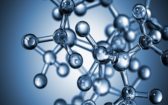晚期心力衰竭的干细胞治疗
晚期心力衰竭 (高频) 仍然是一个重大的公共卫生问题, 影响全球数百万人. 尽管医疗管理取得了进步, 许多患者进展至终末期疾病, 需要机械循环支持或心脏移植. 干细胞治疗 已成为治疗晚期心力衰竭的一种有前途的新方法, 提供心肌再生和改善心脏功能的潜力.
作用机制和临床前证据
干细胞具有分化成多种细胞类型的卓越能力, 包括心肌细胞, 内皮细胞, 和平滑肌细胞. 在高频的背景下, 干细胞疗法 旨在补充受损的心肌, 促进血管生成, 并增强心肌功能. 动物模型的临床前研究已经证明了其可行性和有效性 干细胞疗法 改善心脏功能, 减少梗塞面积, 并促进血管生成.
临床试验和现状
多项临床试验评估了其安全性和有效性 干细胞疗法 晚期心力衰竭患者. 虽然早期试验显示出有希望的结果, 随后的更大规模试验产生了不同的结果. 这些试验的局限性包括样本量小, 患者群体的异质性, 以及不同的干细胞来源和输送方法. 尽管面临这些挑战, 干细胞疗法 仍然是一个活跃的研究领域, 正在进行研究优化细胞类型的试验, 交付策略, 和联合疗法.
未来的方向和挑战
推进该领域 干细胞疗法 用于高级高频, 需要解决几个关键挑战. 这些包括:
- 确定最佳干细胞来源和输送方法
- 制定增强细胞植入和存活的策略
- 了解长期安全性和有效性 干细胞疗法
- 建立患者选择和治疗的标准化方案
干细胞治疗 晚期心力衰竭的治疗前景广阔. 虽然临床前研究和早期临床试验提供了令人鼓舞的结果, 需要进一步研究来优化细胞类型, 交付方式, 和联合疗法. 通过解决当前的挑战, 干细胞疗法 有潜力彻底改变晚期心力衰竭的治疗并改善无数患者的生活.




